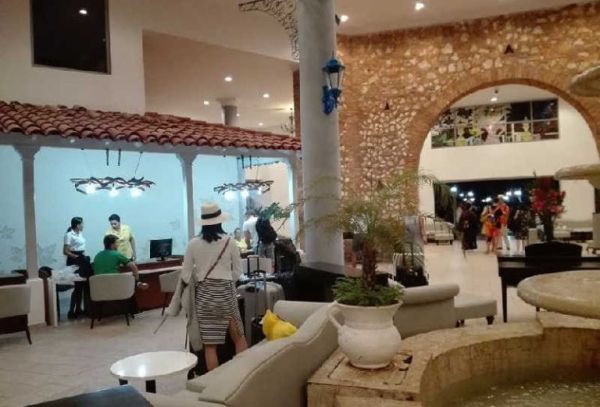
(Photo: Juan Carlos Naranjo / Facebook).
The decrease in the arrival of US visitors, the prohibition of cruise trips to the island, and the impossibility of purchasing logistic supplies in American markets are concrete examples of the impact of the US economic, commercial and financial blockade on the tourism business in Cuba.
During the last few years Sancti Spiritus has reported a decrease in the arrival of tourists from the U.S.A., a market that was showing a gradual upward trend, said Reiner Rendón Fernández, delegate of the Ministry of Tourism (Mintur) in this central Cuban territory.
In a scenario marked by the upsurge of the US siege, last June the Donald Trump administration eliminated general licenses for the so-called “people to people” educational trips to Cuba, while denying licenses to non-commercial aircraft, recreational vessels, and cruise ships.
According to Rendón Fernández, such a decision affected the growing boom in the visits of cruise ships to the country and, therefore, to the port of Casilda, south of Trinidad, whose historic urban center, next to the Valle de los Ingenios, has the status of Cultural Heritage of Humanity by decision of the United Nations Educational, Scientific and Cultural Organization (Unesco) since 1988.
“Tour operators and North American airlines are interested to increase operations in Cuba”, said Rendón Fernández. Due to the US blockade, Cuban tourism was affected with damages amounting to some 1,383 million dollars from April 2018 to March 2019, in areas related to travel, services, operations and logistic supplies.
Last June, the Office of Foreign Assets Control (OFAC) of the US Department of the Treasury ordered that American travelers arriving in Cuba, under any of the 12 categories allowed during the administration of Barack Obama, could not carry out direct financial transactions with companies included in the List of Restricted Cuban Entities.
As said in the recent report submitted by Cuba to the United Nations General Assembly, the United States Government decision to eliminate general licenses for “people to people” educational trips worsen the negative impact on the influx of American tourists to the island.
“Although the previous prohibition of ‘people to people’ trips on an individual basis —says the document—, which forced travelers from the United States to visit Cuba under the sponsorship of an American organization already discouraged the arrival of tourists from that country, the new measure completely suppresses the possibility of traveling under this category”.
 Escambray ENGLISH EDITION
Escambray ENGLISH EDITION





Escambray reserves the right to publish comments.